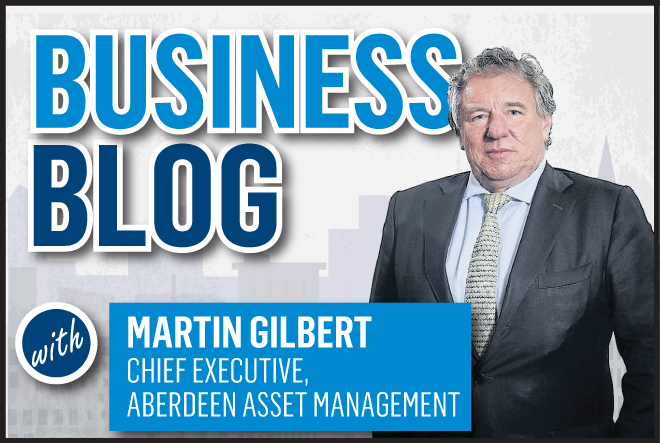If there is one issue I regard as crucial to successful investment it is the need for a long-term approach.
When the credit crunch overtook us in 2008 we saw the disastrous consequences of a short-term, fast-buck mentality in markets. It was one of the starkest lessons ever given to investors, but many failed to learn from it.
Yet there was no lack of authoritative commentators ramming the lesson home. Professor John Kay and Sir George Cox both produced reports that honed in on the need to replace short-term with long-term thinking in markets.
Many people in the financial services industry now acknowledge the need for a wholesale shift to long-termism, though sometimes this looks like lip service. On the other hand, there is some evidence of change. In 2007 the average duration of equity holding in the United States was just seven months; by 2013 it had risen to almost two years.
Short-termism is very difficult to uproot because it isn’t a policy but a culture.
It’s driven by basic human instincts: greed, fear and the desire for instant gratification.
It was famously analysed in an experiment carried out in the 1960s by an American psychologist, Walter Mischel, who offered children a choice of one marshmallow immediately, or two after a short wait. His follow-up 20 years later showed those who had chosen to wait for a larger reward did better in adult life.
Not many “star” performers in the pre-2008 markets would have passed the Marshmallow Test.
Today, although more people are alerted to the dangers of short-termism, it has gained fresh impetus from the speed of technological advance. With trading done by the tap of a smartphone and market sentiment hinged on twenty-four hour news reporting, it requires discipline by investors to resist the temptation to cut and run.
Legislation brought in since 2008 has also enabled investors to track short-term activity more closely. That, combined with greater liquidity in financial markets, creates an almost irresistible urge among investors to act immediately – what we’ve described at Aberdeen as an “innate bias towards action”. Hence the “early exit” culture infecting today’s market.
What can we do to counter this stubborn inclination to short-termism?
Quite a lot, actually. We should educate investors to stop them being fixating on quarterly results that are often a misleading snapshot and convince managers to keep CEOs in post long enough to make them accountable for their legacy and therefore to think long-term.
We should also heed Sir George Cox’s warning that financial aid provided by equity capital is a crucial resource for businesses – he called it a “fund escalator” – but this role is decreasing. That problem is related to the “early exit culture” and small, new companies are suffering the worst.
If we go on like this we’ll never realise the inventive skills of entrepreneurs and their potential for wealth creation. Among the chief victims of short-termism are research and development, essential to maintaining a competitive edge.
But it’s not just the financial industry that is to blame for short-termism. Governments are among the chief culprits. When policymakers’ horizons are restricted to a five-year electoral cycle, what prospect is there of long-term vision?
Yet governments could help, if they had the courage to initiate strategic infrastructure projects and encourage long-term investment in the private sector – by tapering capital gains tax, for example, as the Cox report suggested.
We need a consensus on long-termism between governments and investors. Some progress has been made here with the appointment of Lord Adonis as head of the new National Infrastructure Commission.
The urgent need for long-term thinking in markets is where asset managers could play a key role. Banks can no longer act as the sole motor of economic growth. But asset managers are ideally placed to build bridges between current demands and the funding needs of long-term projects, benefiting capital markets and economic growth.
Last year Andy Haldane, the Bank of England’s Chief Economist, said, “we may be about to enter the Age of Asset Management”.
He’s right to see asset managers as potentially the most effective opponents of the culture of short-termism. I’m proud that Aberdeen has always operated a long-term strategy.
Our motto is buy and hold, often for a decade or more.
We’ve recently been granted a Wholly Foreign-Owned Enterprise (WFOE) licence by the government of China. We welcome this opportunity to participate in the structural development of the world’s second largest economy.
But, as Hugh Young, the Managing Director of our Asian business, said, “our vow is to avoid short termism and focus on quality”. We may have earned a few marshmallows, but we’re not reaching out to grab them just yet.
